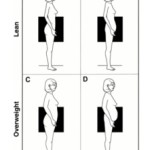 Disclaimer: Following this paragraph, the rest of this blog posting is a reproduction of an article that I found on another “health related” website (www.metaboliceffect.com). It’s written by Dr. Jade Teta, one of the co-founders and developers of the website and co-author of the “The Metabolic Effect Diet” book. Although I wouldn’t say that I agree completely with everything that he suggests, I thought it had some interesting points and was worth sharing with everyone that’s actively trying to lose some of their own “belly fat”.
Disclaimer: Following this paragraph, the rest of this blog posting is a reproduction of an article that I found on another “health related” website (www.metaboliceffect.com). It’s written by Dr. Jade Teta, one of the co-founders and developers of the website and co-author of the “The Metabolic Effect Diet” book. Although I wouldn’t say that I agree completely with everything that he suggests, I thought it had some interesting points and was worth sharing with everyone that’s actively trying to lose some of their own “belly fat”.
Now, here’s the article:
If you’re a female that stores fat primarily in your belly, an apple instead of a pear, then this blog is for you. And, if you’re not the type that likes all the science, then skip to the bottom and just read the “Action steps” section.
The other day in the clinic a patient of mine asked me the following question: “I hear people constantly talking about how women store fat in the lower body, and men store fat in their stomach. But I don’t store fat like the typical woman. My main issue is belly fat. I have a leaner lower body compared to my middle. I am an apple shape. What does this mean? Why do I store fat this way?”
I’ve been asked a variation of this exact question at almost every talk or lecture I give on female fat loss. Another interesting thing about this patient is that she is not fat by anyone’s standard. In fact she is underweight compared to the average. And, if it were not for the fact that I know her measurements, I would have probably dismissed her observation as another example of poor body image.
BTW, as an aside and because I don’t think it is said enough, I happen to think women of all sizes and shapes are beautiful. We need to talk about this more in health and fitness. Sometimes I think all we are doing is making people neurotic when talking about body change. Discussing “fat loss” often gets misinterpreted as if we are saying women “should” look a certain way. Nothing could be further from the truth. Excess fat, especially around the belly has health implications and losing it is beneficial, but beauty, to me anyway, goes far beyond a particular look or shape.
Female belly fat and hormones
There are a few hormones we need to talk about in regards to belly fat in women. And before the calorie zealots get in an uproar, I am not saying calories don’t matter. What I am saying is that it is the hormonal situation that determines where fat is stored, and belly fat is no different.
To lose fat you need both a caloric deficit and hormonal balance. To lose stubborn fat, particularly stubborn belly fat, you need to understand the hormones involved.
In women those hormones are: insulin, cortisol, estrogen, progesterone, and testosterone. And of course the major fat burning hormones, the catecholamines.
When you think of hormones, realize they never work in isolation. In other words, it is wrong to think about the action of a single hormone because hormones behave differently depending on the “hormonal social environment” they find themselves in. For example, insulin and cortisol “socializing with” high testosterone and low estrogen and/or progesterone, have a unique outcome that make women more likely to store belly fat. Here are how these hormones work in bullets to make it easier:
- Estrogen is insulin sensitizing, making it less likely excess calories are stored as belly fat and more likely a calorie deficit results in fat loss rather than muscle loss.
- Estrogen and progesterone both oppose the fat storing action cortisol has on the belly.
- Cortisol is associated with stress, and more stress reactive women release more cortisol and have higher amounts of belly fat whether they are thin or overweight.
- Catecholamines (adrenaline and noradrenaline) are released during intense exercise and have a strong fat burning impact on visceral belly fat (deep stomach fat), and a weaker fat burning impact on subcutaneous belly fat (this is because sub Q belly fat has more ANTI-fat burning alpha adrenergic receptors while visceral fat has more fat burning beta receptors).
- Testosterone is tricky because men with low testosterone have larger bellies, but just as estrogen is responsible for giving women smaller waists testosterone may be the reason men have bigger waists. This testosterone to estrogen ratio is critical for women. Women with higher testosterone levels, like those with PCOS, have thicker waists.
The Female Fat Belly Formula & Stress
- The female formula for belly fat looks something like this: [(Insulin + Cortisol) x Testosterone] – Estrogen= belly fat
- Which means this: Insulin & cortisol combined along with excess testosterone & low estrogen = belly fat
- And could be translated further to this: (F + SS) X ST = A Fat Belly. Where F= fat, SS= sugar/starch, ST= stress.
The greatest impact on the hormone insulin is excess calories in the context of starch/sugar. Foods that combine fat and sugar have the greatest number of calories and the most negative impact on fat storing hormones.
When stress is added on top of this, you have cortisol added to the mix. Cortisol added to insulin is a bad combination and the most problematic hormonal combination for belly fat. But, when stress becomes chronic or extreme in a female, the hypothalamus & pituitary (the command and control center of your hormones) becomes “irritated” (for lack of a better word), and you get downstream effects on thyroid, adrenal, and ovarian hormone production. Chronic stress in women leads to increased testosterone and lower estrogen and progesterone.
The other aspects of stress are more hidden. Not only does stress raise testosterone, lower estrogen, and negatively impact insulin in women, it also causes increased hunger, constant cravings, and a physiology that is more likely to lose muscle.
The Perfect proportions
The typical fat distribution for women is to store more fat in the bust and hips/butt/thighs and less fat in the waist. This is the primary role estrogen plays in female physiology.
Many are not aware, but a large amount of study has been done on female body shape and attractiveness (a lot has been done on the male body too, but that is for another blog). What is interesting is this research shows that across cultures both males and females have a particular shape they prefer on the female physique. The hourglass shape.
Research has even pinpointed the female proportions that are preferred by men and women. Those proportions are a waist to hip ratio (WHR) of between .7 to .8, and a waist to chest ratio (WCR) that is also between .7 to .8. The perfect female proportions would be something like this 36:26:36 (chest:waist:hips). Based on the proportions, women could be smaller, larger, taller, or shorter. The relative proportions of waist to chest and hips dominate the attractiveness factor for females.
This is important because as the waist to hip ratio (WHR) rises much above .8, this is an indication that the hormonal situation is changing. Menopausal women will tell you this first hand. They may not gain weight, but their bodily proportions change. This is the influence of estrogen and progesterone. As estrogen/progesterone fall, and testosterone, cortisol, and insulin rise, the bodily proportions change. When attacking female belly fat it is these proportions that tell you the most about your progress, not your weight on the scale.
Overweight and underweight women both struggle with belly fat
 Here is the final understanding to get. Bigger bellies (i.e. higher waist to hip ratios) are found in both thin women and overweight women. I took a picture right out of the pages of this study so you could see what I mean by this. This can be a bit counter-intuitive to people without seeing it.
Here is the final understanding to get. Bigger bellies (i.e. higher waist to hip ratios) are found in both thin women and overweight women. I took a picture right out of the pages of this study so you could see what I mean by this. This can be a bit counter-intuitive to people without seeing it.
This drives home the point that belly fat is not a simple matter of gaining or losing fat. Calories matter, but hormones matter more when it comes to where we store fat and how to attack stubborn areas of body fat unique to us.
If you are a woman doing everything right and still struggling with female belly fat, and especially a thin woman suffering from belly fat, you need to understand that the primary issue for you is stress management. It’s NOT too many calories. It’s NOT too many carbs. It’s NOT because you are not doing enough exercise. It is stress!
In fact, the dieting mentality of eat less and exercise more is exactly the wrong approach to take to attack STUBBORN female belly fat. This simply makes the physiological stress greater, and there is much evidence that suggests dieting may actually be making your fat parts (i.e. your belly) fatter.
BTW, when I use the term “stress” it is important people understand what I mean. For some reason we equate stress with emotional upset. So we think if we do not feel anxious or depressed we are not stressed. This is a dangerous misconception to have when it comes to belly fat.
Let’s take a mother who just gave birth to her first child. She is happy, elated, and in awe. This may be one of the happiest and most incredible moments of her life. Is she stressed? Probably more than anyone else on the planet! She is sleep deprived (stress). She is nutritionally depleted from growing a baby and supplying the baby with milk (stress). She has a whole new life impossible to be prepared for (stress). This shows that you can be as happy as can be, but stressed to the max.
Over exercising, chronic and extreme dieting, worries of body image, work worries, relationship tension, sleep deprivation, and on and on . . all forms of stress. And, what we know conclusively from women suffering from stubborn belly fat is that they are more stress reactive, and less able to adapt to stress, than women without. In other words, female belly fat is an issue of stress above all else. For women suffering from stubborn belly fat she can’t get rid of, another hour in bed may be a better strategy than another hour on the treadmill!
Actions steps
OK, so what the hell do you do about it? Here are your action steps:
- Remember that female fat belly formula? (Fat + Sugar/Starch) X Stress= fat belly. The stress is the most important part. So, prioritize rest and recovery workouts. What I call R & R workouts.
- Follow a 3:2:1 exercise program to keep from over stressing through exercise. 3 R & R workouts per week (these lower cortisol and will help re-balance estrogen and testosterone). 2 Traditional weight training workouts per week (these help use testosterone for muscle building not belly storing). 1 hour of leisure walking (not power walking) on all or most days. Leisure walking is the best exercise for those with female stubborn belly fat.
- What are R&R workouts? They last preferably an hour and include a massage, spa time, sauna therapy, hot baths, sex/physical affection, time with pets, leisure walking (not power walking), restorative yoga (not power yoga), tai chi, naps, meditation, etc.
- What is leisure walking? A slow walk – 3.0 or less on a treadmill. It should feel relaxing and give you time to take in the scenery which lowers cortisol further.
- Don’t go too low calorie, too low carb, or too low fat. Any type of short, extreme, or continuous chronic dieting is a stress. Don’t do it. Find balance in your nutrition.
- You may want to avoid other more “stressful” approaches to body change. Many do well on things like very low carb, intermittent fasting, or other approaches.
- Prioritize sleep. You will have to make a choice whether your late night TV habit is more important than a flat tummy because sleep deprivation is a huge issue for belly fat. If you can’t sleep then nap. If you can’t nap then meditate. If you can’t do any of that, then simplify your life so you can. Stress management has to be made a priority.
- Don’t eat less and exercise more. A better approach is to either eat less and exercise less, OR eat more and exercise more (both can also create the environment for fat loss: a caloric deficit and hormonal balance). You will likely find the best results with an eat less, exercise less approach. That means the 3:2:1 workout schedule described above.
- I hesitate to give you a nutrition plan to follow because you will likely follow it to a T and forget that it is not about following a diet, it is about creating the diet perfect for you. But I will do it anyway……reluctantly. Start with a 3:2:1 diet approach to go along with your 3:2:1 workout approach. 3 meals per day. 2 of them protein shakes and 1 free meal a week. This is a super simple formula to follow. This will assure a low calorie diet, with plenty of protein and a balanced hormonal state.
- BTW, if you are now complaining in your head about the recommendation of protein shakes because they are not “real food”, then this is an indication you really need to stop taking all this stuff so seriously (quit stressing out over trivial stuff). Do what you like. Just make sure the meals have high protein & fiber above all else (they keep you full and keep you from losing muscle). Of course, real food is ALWAYS preferred, but high stressed individuals need to prioritize simplicity and convenience at all times.
- One final trick. Stress is a very tricky thing and can be wreaking havoc on your metabolism without you knowing it. There are a few supplements that have been shown to help the hypothalamus/putuitary control center resist stress. These include curcumin, fish oil (preferably krill oil since it contains phospholipids), and rhodiola.
 Loreli’s company, Alter Ego Fitness Experience, offers Personal Training, Group Fitness and YogaFit training options. Her passion for overall health and wellness, and her innate ability to sense a client’s personal struggles, enables her to assist them to get to their next level and to, ultimately, find their “alter ego”!
Loreli’s company, Alter Ego Fitness Experience, offers Personal Training, Group Fitness and YogaFit training options. Her passion for overall health and wellness, and her innate ability to sense a client’s personal struggles, enables her to assist them to get to their next level and to, ultimately, find their “alter ego”!
“Overall health and fitness is a journey, not a destination!“